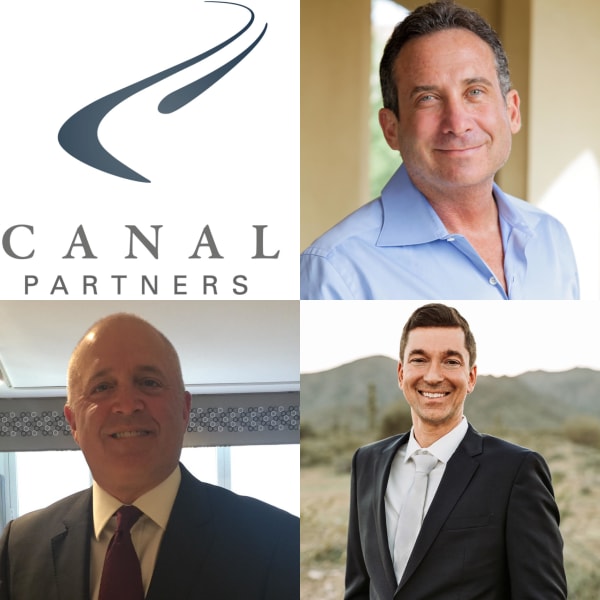On December 14, Startup Grind Phoenix hosted an interactive fireside chat with Todd Belfer, Chad Horstman, and Perry Jacobson of Canal Partners. Led by moderator Lauren Baxter, they touched upon a wide variety of topics, including their backgrounds, what they look for in a company and pitch, and their advice for entrepreneurs.
If you don’t have time to watch the full video, here are some of the highlights from the event.
After exiting your own ventures, why did you decide to start investing with Canal Partners?
Chad: Todd has been doing really well, and I felt like I could learn a lot from him. I invested in Allbound, which was a deal that did well, and Canal Partners had a history of doing quite well in general. So that was obviously the main motivation.
But beyond that, I wanted to do something that would be fun and enjoyable. Going on those initial meetings with Todd and meeting companies felt a lot like Shark Tank, which has always been one of my favorite shows. You get these entrepreneurs that are in the thick of it and they are so passionate about what they’re doing. It’s just fun meeting with them, and if we invest, it’s great working alongside them and helping and guiding them. It’s great being involved without actually being in the hot seat.
What types of companies are you looking to invest in?
Chad: We are looking to invest in companies that generate between $1-$3 million in recurring revenue, but we are opening it up beyond just software to companies with a subscription component.
Todd: There’s a famous Warren Buffet saying: “When others are fearful, be greedy. When others are greedy, be fearful.” Right now, we are in that time where everyone is greedy. When you look at the public market SaaS multiples and how they continue to go up and up and up, that’s greed. At some point, it trickles down to the private equity and venture markets.
That’s why we’re kind of moving directionally away from pure SaaS companies toward anything with a subscription. We’re currently looking at a lighting company and an electrical contracting company that have subscription models. We’re looking at more traditional businesses and trying to bring in great people, provide them with the technology to really run their business, and provide value.
What do you like to see in a pitch from entrepreneurs?
Perry: We like to see entrepreneurs who have a plan and are confident. They also have to be open to bringing us in as a true partner rather than just wanting our money. The chemistry between us and the founders is very important. Money is money, but when you get down in tough times, it’s about who you trust and who’s on your team.
Todd: It’s important to be realistic. We’ll see these five-year plans from companies doing $100,000 in revenue and by year five, they are projecting $230 million in revenue and making more than $100 million. We just have to laugh at those, because they just have no idea. To go beyond 18 months in a business model is extremely difficult. Markets change, pandemics happen, crashes happen… A lot of accelerators or investors ask you for five-year projections, but I think it’s a waste of time. I think 2 to 3 years is fine, but most of the focus should be on the next 12 months and hitting all your milestones.
Do you have any advice for founders?
Chad: I started my business, Yandy, in a garage with $10,000 in savings. I believe in the lean model. As you’re starting, you have to be willing to sacrifice your nights and weekends and put your all into it. I really look for that fire in the people we talk to. There are only certain people who are meant to be entrepreneurs. You have to be risk-averse. There’s a certain personality that it takes to succeed, and you need that independence, confidence, and a super-strong work ethic.
Todd: You have to have fun. Most startups we invest in have 5 to 20 employees. You need to be a family and team that has fun and goes to happy hour or on trips with each other. You have to have each other’s back. It’s almost like being in the military. You have to be a unit. If you aren’t having fun and enjoying life with your company and coworkers, I don’t care how good your product is, how big your market is, and how much you raise. You aren’t going to win.

